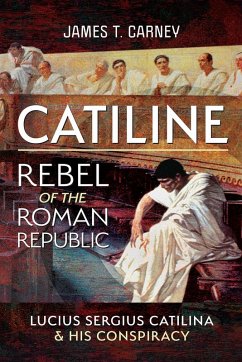Lucius Sergius Catilina ('Catiline'), was a Roman aristocrat from a poor but noble family. He was controversial figure both in his own times and in subsequent historical scholarship. Catiline was cast first as the Roman equivalent of Richard III and later as a left-wing revolutionary, depending on the times and historians' leanings. Although Catiline's calls for debt relief and other measures in his second consular campaign earned him support from the poor, the author finds that Catiline was motivated by pride and ambition rather than by an interest in widespread social and economic reforms. Embittered by his failure to attain the consulship which he thought was his due given his heritage. He had his lieutenant Manlius raise armed forces in Etruria while he planned to stage a coup in Rome when these forces approached the city.The conspiracy was betrayed to Cicero. Cicero skillfully used his knowledge of the conspiracy to force Catiline to leave Rome and join Manlius, leaving the city conspirators without effective leadership. Catiline's urban lieutenants soon blundered by seeking to enlist the support of a Gallic tribe whose emissaries were in the city. The Gauls, skeptical of the conspirators; leadership. decided report all that they had learned about the conspirators' plans to Cicero. Using the evidence obtained from the Gauls, Cicero presented a prosecutor's case against the conspirators to the Senate and rallied public opinion against the Catilinarians.Cicero then executed five of the key conspirators without trial. When Catiline's soldiers learned of destruction of the urban conspiracy, many deserted. Cataline, finding his army trapped between two larger government forces, died fighting in a fierce but doomed battle at Pistoia.
Dieser Download kann aus rechtlichen Gründen nur mit Rechnungsadresse in A, B, BG, CY, CZ, D, DK, EW, E, FIN, F, GR, HR, H, IRL, I, LT, L, LR, M, NL, PL, P, R, S, SLO, SK ausgeliefert werden.









